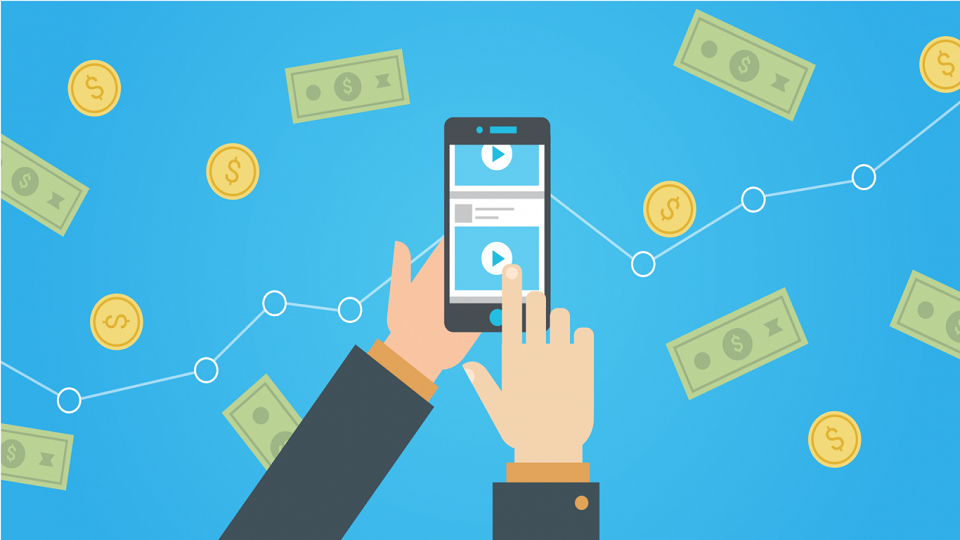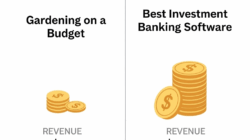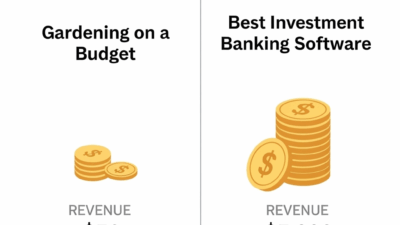Do you ever find yourself wondering how to earn some extra bucks while doing what you love? Well, you’re in luck! With the rise of the internet and the digital age, there are countless opportunities to monetize your content and turn your passion into a money-making venture. Whether you’re a blogger, vlogger, podcaster, or an avid social media user, there are various ways to cash in on your creativity. In this article, we’ll explore some fun and effective ways to monetize your content like a boss!
What is content monetization?
Content Monetization is the process of generating revenue or income from digital content, such as articles, videos, blogs, or other forms of media. This involves leveraging the content you create or own to generate earnings through various strategies and channels.
Content Monetization involves turning your digital content into a source of income. Whether you’re a blogger, YouTuber, or website owner, it’s about finding ways to make money from the content you produce. This can include methods like advertising, affiliate marketing, selling digital products or services, paid subscriptions, or even licensing your content to other platforms or businesses. Essentially, it’s finding creative ways to turn your content into cash flow.
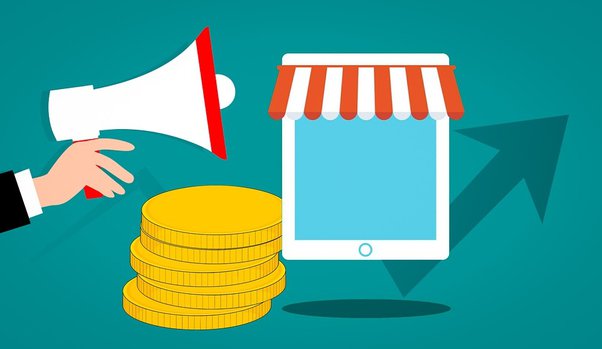
What are examples of monetization?
Monetization refers to the process of generating revenue from various assets, activities, or resources. It can apply to a wide range of businesses and industries. Here are some examples of monetization in different contexts:
- Digital Content Monetization:
- Subscription Services: Platforms like Netflix and Spotify charge users a monthly fee to access their content libraries.
- Pay-Per-View (PPV): Paying to watch a single movie or sports event, often used in the entertainment industry.
- Ad Revenue: Websites, apps, and YouTube channels earn money by displaying ads to their users.
- E-commerce Monetization:
- Online Retail: Companies like Amazon and eBay sell products online and make a profit from each sale.
- Dropshipping: E-commerce stores that sell products but don’t handle inventory directly; they purchase items from third-party suppliers only when a sale is made, thus reducing upfront costs.
- Affiliate Marketing: Earning a commission by promoting and selling other companies’ products or services through affiliate links.
- Software Monetization:
- Software as a Service (SaaS): Subscription-based software models where users pay a regular fee for access to software applications, like Microsoft 365 or Adobe Creative Cloud.
- One-time Software Sales: Selling software licenses for a one-time fee, such as Adobe Photoshop.
- In-App Purchases: Mobile apps monetize by selling virtual goods, features, or upgrades within the app.
- Content Creation Monetization:
- YouTube Creators: Earning ad revenue, sponsorships, and merchandise sales by creating and sharing videos on YouTube.
- Podcasters: Earning revenue through sponsorships, donations, or premium content.
- Bloggers: Monetizing blogs through advertising, affiliate marketing, and selling digital products or courses.
- Gaming Monetization:
- Freemium Games: Offering games for free but generating revenue through in-game purchases, such as virtual items or currency.
- Microtransactions: Small, in-game purchases that enhance the gaming experience.
- Subscription Gaming Services: Services like Xbox Game Pass and PlayStation Plus offer access to a library of games for a monthly fee.
- Social Media Monetization:
- Influencer Marketing: Social media influencers collaborate with brands for sponsored posts and promotions.
- Social Media Advertising: Businesses pay to advertise on social media platforms like Facebook, Instagram, and Twitter.
- Paid Social Media Content: Some platforms pay users for their content or live streaming, such as Facebook’s Ad Breaks and Twitch’s Partner Program.
- Real Estate Monetization:
- Rental Properties: Property owners generate income by renting out apartments, houses, or commercial spaces.
- Real Estate Investment: Earning rental income and capital gains through real estate investments.
- Monetization of Data:
- Data Sales: Companies sell anonymized or aggregated user data to other businesses for market research and analysis.
- Data Subscription Services: Businesses pay for access to premium data sources, such as financial data feeds.
- Media and Entertainment Monetization:
- Movie Box Office: Earnings from ticket sales and concessions at movie theaters.
- Music Streaming: Revenue from music streaming services like Spotify and Apple Music, based on subscription fees and ad revenue.
- Healthcare Monetization:
- Health Insurance: Insurers collect premiums from policyholders.
- Medical Services: Healthcare providers generate revenue through patient visits and procedures.
- Education Monetization:
- Tuition Fees: Educational institutions, both traditional and online, charge tuition fees for courses and programs.
- Online Courses: Platforms like Coursera and Udemy earn revenue from course enrollments.
These examples illustrate how businesses and individuals can monetize various assets and activities, and there are many more monetization models and strategies tailored to specific industries and niches. The key is to find the most suitable monetization approach based on the business’s offerings and target audience.
10 Ways to Make Money From Content
- Affiliate Marketing
Affiliate marketing is a popular way to earn money by promoting other people’s products or services. You earn a commission for every sale or referral made through your unique affiliate link. Joining affiliate programs of brands related to your content niche can help you generate passive income. Remember to disclose your affiliate partnerships transparently to maintain trust with your audience. - Sponsored Content
If you have a sizable online following, brands may approach you for sponsored content collaborations. In exchange for creating engaging and relevant content featuring their products or services, you receive compensation. It’s essential to maintain authenticity and only collaborate with brands that align with your values and audience preferences. - Paid Memberships or Subscription Services
Consider offering exclusive content, courses, or services through a paid membership or subscription model. This approach works well for creators who have a dedicated and highly engaged fan base. By providing value-added content behind a paywall, you can create a sustainable revenue stream. - Advertisements
Enabling advertisements on your digital platforms, such as websites or YouTube channels, can generate revenue through ad impressions or clicks. Platforms like Google AdSense or YouTube Partner Program make it easy to monetize your content through advertising. However, strike a balance so that ads do not overwhelm or negatively impact user experience. - Digital Products
Create and sell digital products such as e-books, online courses, stock photos, music, or software. These products are relatively low-cost to produce and can be an excellent source of passive income. Leverage your expertise and unique skills to offer valuable products that address your audience’s needs. - Crowdfunding
If you have a loyal fan base, crowdfunding platforms like Patreon or Kickstarter enable your supporters to contribute financially to your content creation. In return, you can provide exclusive perks like early access to content, behind-the-scenes updates, or personalized shoutouts. Crowdfunding can be an excellent way to fund ongoing projects while nurturing a closer relationship with your audience. - Events and Workshops
Consider organizing physical or virtual events, workshops, or meetups related to your content niche. Charge a fee for participation or collaborate with sponsors to cover costs. Events provide an opportunity to connect with your audience in person and create memorable experiences while generating revenue. - Merchandise and Branding
Leverage your brand by creating and selling merchandise that resonates with your audience. From t-shirts, mugs, or phone cases, merchandise can be a great way to showcase your brand and generate additional income. Focus on creating products that align with your content and have an attractive design. - Donations and Tips
If your audience appreciates your content and wants to support you directly, consider accepting donations or tips. Platforms like PayPal or Ko-fi make it easy for your audience to contribute financially without any commitments. Express gratitude to your donors and make them feel valued through personalized acknowledgments. - Brand Collaborations
As your content gains traction, brands may approach you for collaborations beyond sponsored content. This can include ambassadorships, brand partnerships, or even creating your own branded products. Collaborating with reputable brands can not only bring in additional revenue but also boost your credibility and reach.
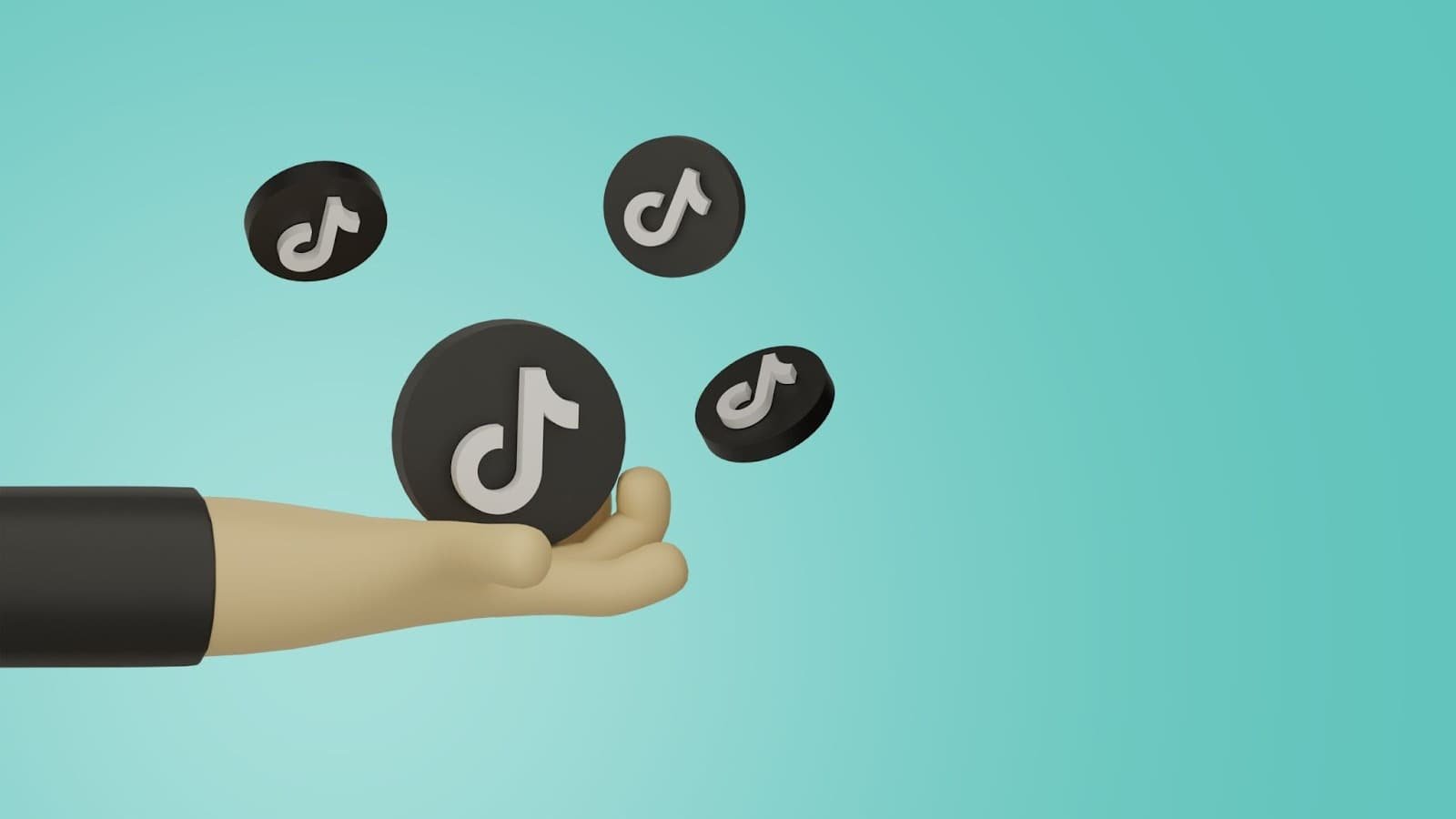
Can I make money from writing articles?
Yes, it is possible to earn money by writing articles. Earning money through article writing is entirely feasible. Many individuals and organizations are willing to pay for well-crafted, informative, and engaging articles.
How to make money from articles?
There are several ways to earn money from writing articles, here are 8 ways to earn money from writing articles:
- Freelance Writing:
- Description: Freelance writers offer their writing services to clients and get paid for creating articles, blog posts, or other content.
- How It Works: Writers can find clients through freelance platforms like Upwork, Guru, or Freelancer. They negotiate rates, complete assignments, and receive payment upon completion.
- Blogging:
- Description: Bloggers create and publish articles on their blogs, and they can monetize their content through various methods.
- How It Works: Bloggers can earn money through advertising (e.g., Google AdSense), affiliate marketing (promoting products and earning commissions), sponsored posts, and selling digital products or services.
- Content Mills:
- Description: Content mills are platforms where writers can write articles on various topics and earn money.
- How It Works: Writers select assignments from the platform, write articles, and get paid based on the word count or complexity of the task. Examples include Textbroker and WriterAccess.
- Content Platforms:
- Description: Content platforms like Medium and HubPages allow writers to publish articles and earn money based on article views and engagement.
- How It Works: Writers can publish articles on these platforms and participate in revenue-sharing programs, receiving a portion of the advertising revenue generated by their articles.
- Guest Blogging:
- Description: Writers contribute articles to other websites or blogs and may receive payment or exposure in return.
- How It Works: Writers pitch article ideas to websites in their niche. If accepted, they write the article and receive payment or a byline, which can help build their portfolio.
- Self-Publishing:
- Description: Authors write ebooks or digital content and self-publish them on platforms like Amazon Kindle.
- How It Works: Authors retain control and earn royalties from book sales. Effective marketing and niche selection are crucial for success.
- Academic Writing:
- Description: Some writers offer academic writing services, assisting students with essays, research papers, and dissertations.
- How It Works: Writers advertise their services on academic writing platforms or directly to students. They are paid for completing academic assignments.
- Content Marketing Agencies:
- Description: Content marketing agencies hire writers to create content for clients’ websites, blogs, and marketing materials.
- How It Works: Writers work as part of a content marketing team, creating content based on client requirements and guidelines.
These methods provide writers with various opportunities to earn money from their articles. Success often depends on factors such as writing quality, niche expertise, marketing efforts, and the specific monetization strategy chosen.
What is content monetization for creators?
Content monetization for creators refers to the process by which individuals or organizations generate revenue from the content they create and share. This content can take various forms, including written articles, videos, podcasts, music, art, software, and more. Monetizing content allows creators to earn income from their work, whether it’s a full-time career or a supplementary source of revenue. Several methods and platforms enable content monetization:
- Advertising: Creators can display ads on their content, such as videos on YouTube, articles on websites, or apps. They earn money based on ad impressions, clicks, or the engagement of their audience with the ads. Platforms like Google AdSense and affiliate marketing programs can facilitate ad monetization.
- Subscription Models: Creators can offer premium content or access to exclusive features or communities in exchange for a recurring subscription fee. Examples include Patreon, Substack, OnlyFans, and membership-based websites.
- Sponsorships and Brand Partnerships: Content creators can collaborate with brands and sponsors to promote products or services within their content. This often involves sponsored posts, product placements, or dedicated content. Creators receive payment or products from sponsors in return.
- Merchandise Sales: Many creators sell merchandise related to their content, such as branded apparel, books, posters, or digital downloads. Platforms like Shopify, Teespring, and Etsy can facilitate merchandise sales.
- Affiliate Marketing: Creators can promote products or services through affiliate links. When their audience makes a purchase through these links, the creator earns a commission. Amazon Associates and various affiliate marketing networks are commonly used for this purpose.
- Crowdfunding: Creators can use crowdfunding platforms like Kickstarter, Indiegogo, or GoFundMe to raise funds for specific projects or ongoing content creation. Supporters contribute money in exchange for rewards or exclusive access.
- Digital Products and Courses: Creators can develop and sell digital products, such as e-books, online courses, tutorials, templates, or software. Websites like Udemy, Teachable, and Gumroad facilitate the sale of digital products.
- Live Streaming and Donations: Live streaming platforms like Twitch and YouTube Live allow creators to earn income through viewer donations, tips, and virtual gifts from their audience during live broadcasts.
- Freelancing and Consulting: Some creators leverage their expertise to offer freelancing services or consulting. They may provide services related to their content niche, such as writing, design, coaching, or advisory work.
- Content Licensing: Creators can license their content, such as photos, videos, music, or artwork, to be used by other individuals or organizations for a fee. Stock photo and video platforms like Shutterstock and Adobe Stock operate on this model.
- Pay-Per-View or Pay-Per-Read: Creators can charge users for access to specific content pieces, articles, videos, or live events on a per-view or per-read basis.
- Donation-Based Models: Some creators rely on the goodwill of their audience and offer their content for free while encouraging voluntary donations or support through platforms like PayPal, Patreon, or Ko-fi.
Successful content monetization often requires a combination of these methods, as well as a deep understanding of one’s target audience, niche, and the most effective strategies for reaching and engaging with followers. Creators should also be mindful of legal and ethical considerations when monetizing their content, such as copyright and disclosure obligations when working with sponsors and affiliates.
3 Best services for content monetization
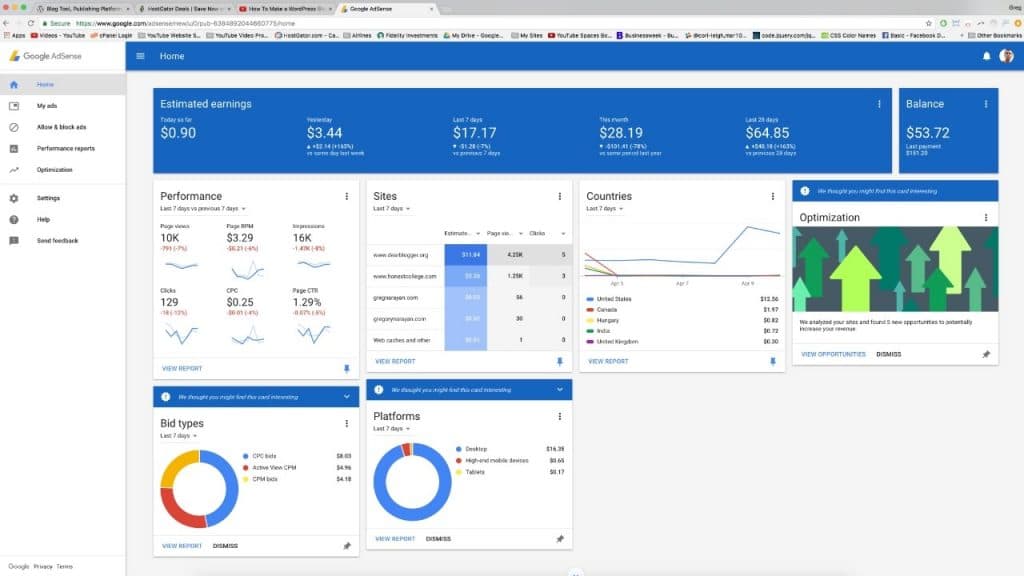
- Google AdSense: Maximizing Ad Revenue
Google AdSense is a household name in the world of content monetization. It empowers website owners and bloggers to display targeted advertisements on their platforms and earn revenue when visitors click on or view these ads.
Features:- Diverse Ad Formats: AdSense offers a wide range of ad formats, including display ads, video ads, and responsive ads, allowing publishers to choose what suits their content best.
- Easy Integration: Integration with websites is hassle-free, thanks to user-friendly tools and resources.
- Google’s Vast Network: AdSense taps into Google’s expansive advertising network, ensuring publishers receive relevant, high-paying ads.
- Amazon Associates: The Affiliate Marketing Giant
The Amazon Associates program, also known as the Amazon Affiliate Program, is a revered affiliate marketing platform. Content creators can promote Amazon products on their websites or in their content, earning commissions on sales initiated through their unique affiliate links.
Features:- Extensive Product Selection: Amazon Associates grants access to a vast array of products, from electronics to books, catering to diverse niches.
- Competitive Commissions: The program offers competitive commission rates, varying based on product categories and sales volume.
- Robust Analytics: Amazon provides tools for tracking and optimizing affiliate campaigns, allowing creators to refine their strategies.
- Medium Partner Program: Earning from Your Stories
The Medium Partner Program is a content monetization platform tailored for writers on the Medium platform. Writers can earn income based on the engagement and reading time their stories garner from Medium subscribers.
Features:- Simplified Monetization: Medium offers a straightforward approach for writers to earn money from their articles simply by publishing on the platform.
- Engagement-Driven Earnings: Writers are rewarded based on the engagement and value their content provides to Medium subscribers.
- Community and Exposure: Medium boasts a thriving community of writers and readers, offering an opportunity for exposure and connection.
Conclusion
Monetizing your content doesn’t have to be boring or complicated. With the right strategies and a touch of creativity, you can turn your passion into a lucrative venture. Remember, building a loyal audience and providing valuable content should always be your top priority. So, get out there, explore these monetization options, and start making money the fun way – like a boss!

